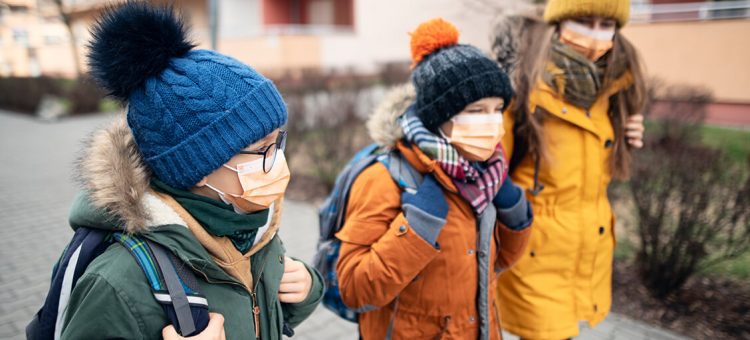A new Axios|SurveyMonkey poll finds some potentially pernicious partisan gaps on COVID-19 perceptions.
The partisan divide includes assessments of the validity of news reports:
- Fully 62% of Republicans see news reports about the seriousness of the novel coronavirus as “generally exaggerated,” DOUBLE the percentage of Democrats saying so (31%).
- Among independents, 35% see the reports as likely exaggerated, with more, 45%, saying they’re “generally correct” and another 16% indicating the seriousness of the outbreak is “generally underestimated.”
The party gap shows up in public views on how easily COVID-19 spreads: Overall, 39% of American adults see the virus as “very easily” spread, with Democrats 13-points more apt than Republicans to say so (47% to 34%).
Divisions also reveal themselves in professed likelihood to avoid:
- Large events such as sporting events or concerts: Democrats 18-points more apt be at least somewhat likely to avoid, 67% to 49% for Republicans …
- Public spaces such as restaurants, shopping malls, and theaters: Democrats 16-points more likely to steer clear, 53% to 37% for Republicans ...
- Social gatherings at the homes of friends and families: Democrats 13-points more likely to avoid, 38% to 25% for Republicans.
But there is a point of lock-step: Among both Democrats and Republicans 22% see a potential federal mandate of 14-day self-quarantines for anyone exposed to COVID-19 as threatening to their personal rights and freedoms; far more, 77% in both groups would not see such danger in the move.
For more detailed results, click through the interactive toplines below.
Read more about our polling methodology here.
Question text:
Thinking about what is said in the news, in your view is the seriousness of coronavirus generally exaggerated, generally correct, or is it generally underestimated?
To the best of your knowledge, how easily does the coronavirus (COVID-19) spread?
How likely are you to avoid attending large events, such as sporting events or concerts, as a result of the coronavirus?
How likely are you to avoid public spaces, such as restaurants, shopping malls, or theaters, as a result of the coronavirus?
How likely are you to avoid social gatherings at the homes of friends and family as a result of the coronavirus?
If the federal government were to require a mandatory 14-day self-quarantine for anyone exposed to the coronavirus, would you say that this threatens or does not threaten your personal rights and freedoms?



